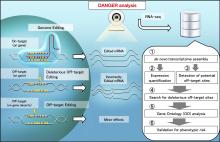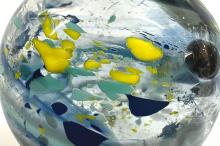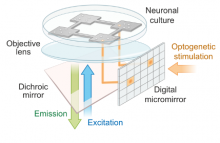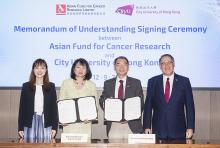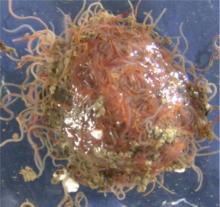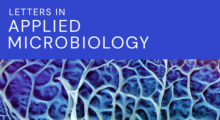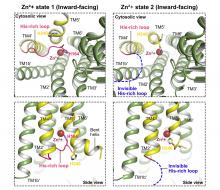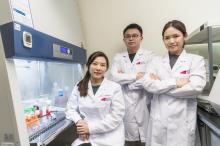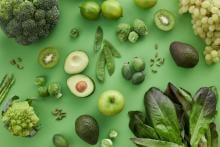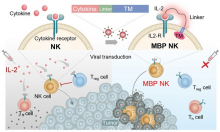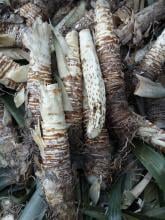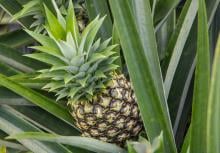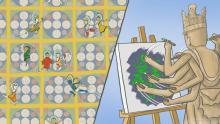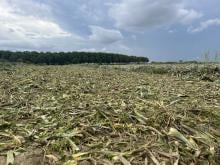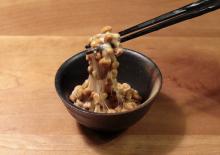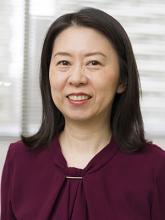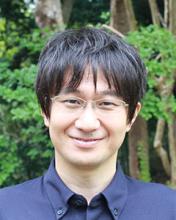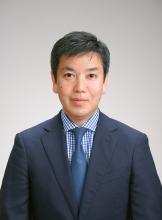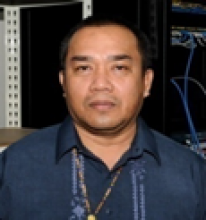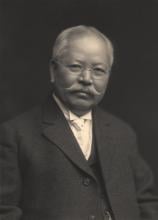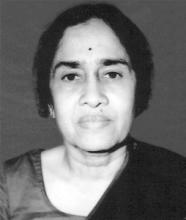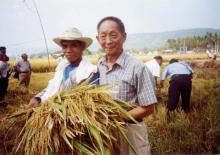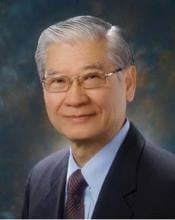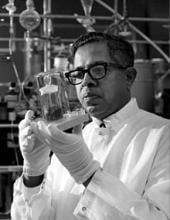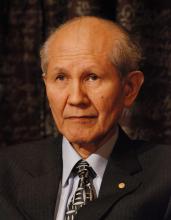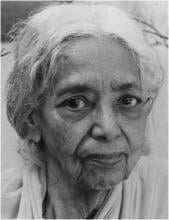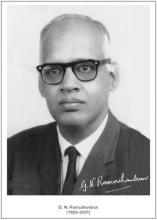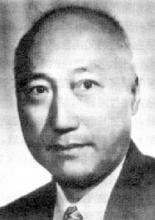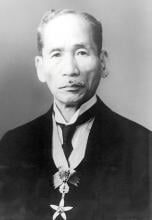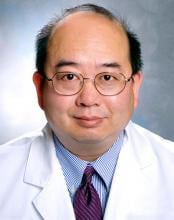Biotech
News
20 Oct 2023
Risk-averse on/off-target assessment for CRISPR editing without reference genome
20 Oct 2023
New perspective argues pursuing fair AI for healthcare requires cross-disciplinary collaboration to translate methods into real-world benefits.
16 Oct 2023
The shortlist for the Applied Microbiology International Awards 2023 has now been announced.
The AMI Awards programme is designed to celebrate the brightest minds in our field and promote the research, group, projects, products and individuals who continue to help shape the future of applied microbiology.
13 Oct 2023
Asia Research News monitors the latest research news in Asia. Some highlights that caught our attention this week are radiation blasts that come from outer space, a new way of seeing the Earth’s core, and a prosthetic socket that fills in the gaps.
05 Oct 2023
The finalists in the Applied Microbiology International Product of the Year Award 2023 have been announced. The awards promote the research, groups, projects, products and individuals who are shaping the future of applied microbiology.
20 Sep 2023
Scientists have revealed that the outer part of our brain (the cortex) is skilled at managing all the info it gets from the outside world thanks to special groups of nerve connections called modules, which work together but also independently.
12 Sep 2023
City University of Hong Kong (CityU) signed a Memorandum of Understanding (MoU) today (12 September) with the Asian Fund for Cancer Research (AFCR) to establish a closer collaboration between both parties and jointly promote cutting-edge cancer-related innovative inventions and commercialisation. The inaugural forum of the “AFCR-CityU Innovation Series in Biomedicine” (Innovation Series in Biomedicine) invited world-leading scholars from Harvard Medical School and other guest speakers to talk about the advances in biomedicine and innovation and entrepreneurship, and exchange views with representatives from industry, venture investors and start-up teams, and explore related commercialisation models and opportunities.
11 Sep 2023
Researchers have unveiled an intriguing phenomenon of cellular reprogramming in mature adult organs, shedding light on a novel mechanism of adaptive growth. The study, which was conducted on fruit flies (Drosophila), provides further insights into dedifferentiation - where specialized cells that have specific functions transform into less specialized, undifferentiated cells like stem cells.
01 Sep 2023
Asia Research News monitors the latest research news in Asia. Some highlights that caught our attention this week are the detection of a rare isotope of oxygen, converting waste coconut fibers into a flavoring compound, and a smart contact lens battery that can be powered by tears.
01 Sep 2023
Tubificine worms inhabit the sediments of lakes and rivers. They can form into blobs that behave like a single organism to adapt to extreme environmental conditions. Recreating an uneven and confined terrain, a group of scientists has recently studied the collective movement of worm blobs.
31 Aug 2023
Applied Microbiology International (AMI) is boosting training and development opportunities for early career scientists in journal publishing with the appointment of 14 new junior editors on its flagship journal Letters in Applied Microbiology (LAM). They were selected from more than 100 applicants by the Editor-in-Chief, Dr Marcela Hernández.
31 Aug 2023
Roughly 10% of the proteins in our body rely on zinc. A group of researchers has unearthed the secrets behind a tiny but crucial protein that shuttles zinc ions within our bodies, offering a deeper understanding of how our cells maintain optimal health.
25 Aug 2023
Asia Research News monitors the latest research news in Asia. Some highlights that caught our attention this week are how melatonin can help us remember objects, drones that can assemble and disassemble in mid-air, and a new species of anemone.
16 Aug 2023
A research team co-led by City University of Hong Kong (CityU) and The University of Hong Kong (HKU) has recently made a significant advancement in spinal cord injury treatment by using genetically modified human neural stem cells (hNSCs). They found that specifically modulating a gene expression to a certain level in hNSCs can effectively promote reconstruction of damaged neural circuits and restore locomotor functions, offering great potential for new therapeutic opportunities for patients with spinal cord injury.
15 Aug 2023
Innovators from 10 Countries Compete for the Coveted Advanced Healthcare and Life Sciences International Innovation Awards at MTE 2023
11 Aug 2023
A team of scientists from Thailand and Malaysia, led by principal investigator, Associate Professor Taweechai Amornsakchai from Mahidol University, has successfully developed a low-cost and green method to make films prepared from pineapple stem starch for food packaging, such as fruits and vegetable.
09 Aug 2023
- Led by DGIST's Jiwoong Yang and Seoul National University's Jungwon Park, the team has determined the moisture-induced degradation mechanism of semiconductor nanocrystal quantum dots using in-situ liquid-phase transmission electron microscopy (TEM).
- The research findings have been published in the online edition of the prestigious nanoscience journal "ACS Nano."
04 Aug 2023
Asia Research News monitors the latest research news in Asia. Some highlights that caught our attention this week are how the tobacco plant could be used to help treat cancer, how lifting weights is good for your skin, and a glue that can be switched on and off.
03 Aug 2023
Dr. Zhang Yi, the lead scientist, and his team of researchers from Canada, Singapore, the UK, have successfully completed a study, comparing the efficiency of various bioreactors in producing Raspberry Ketone through Submerged Fermentation. This research marks the first time such a study has been conducted.
25 Jul 2023
Illuminating the molecular ballet in living cells, Charting the voyage of marine plastics, A glimpse into the origins of life & Earliest human journeys to Asia. Plus Submissions open for Asia Research News 2024. Read all in the latest Editor's Choice.
11 Jul 2023
The entire biosynthetic pathway of actinopyridazone has been unveiled, revealing that an unprecedented carrier protein-mediated ring-forming step is key to its synthesis.
07 Jul 2023
Asia Research News monitors the latest research news in Asia. Some highlights that caught our attention this week are a way to avoid biopsies by catching free-floating DNA, a large dip in the Earth’s surface under the Indian Ocean, and how people who brush their teeth before bed seem to have healthier hearts.
04 Jul 2023
- Professor Minseok Kim’s team at the DGIST confirmed the excellent anticancer effects of the NK cell therapy product that can self-activate in preclinical trials with CT Cells
- This work is expected to be applied in various fields as a next-generation anticancer therapy using NK cells
18 Jun 2023
A team of researchers from universities in Thailand and Malaysia have collaborated to develop a unique kind of bioplastic sheet that is good for the environment and can decompose naturally. They made this bioplastic sheet using a byproduct of the bromelain industry which used the leftover pineapple stems from agricultural waste. This new type of bioplastic sheet has the potential to be used as single-use packaging material, as an alternative to the use of harmful plastic sheet, contributing to a more sustainable way of doing business and promoting a circular economy.
07 Jun 2023
Scientists from Thailand, France and Singapore have conducted groundbreaking research using both tiny cellulose nanofibers (CNF) and long pineapple leaf fibers (PALF) to create stronger materials. They added varying amounts of CNF to epoxy and found that 1% CNF greatly increased impact strength. PALF-epoxy composites showed significant flexibility and strength improvements. Combining CNF and PALF resulted in a remarkable increase in impact strength. The findings could revolutionize stronger material development.
06 Jun 2023
Ultrafast fluorescent imaging technology brings the molecular dynamics of living cells into clear view.
25 May 2023
A group of researchers from universities in Thailand and Malaysia have collaborated to develop a unique kind of film that is good for the environment and can decompose naturally. They made this film using leftover pineapple stems, which helps reduce the use of harmful plastic films. This new film has the potential to be used as packaging material, contributing to a more sustainable way of doing business and promoting a circular economy.
25 May 2023
Eating fermented foods might be the secret to a healthy and long-lived society
19 May 2023
Mushrooms 🍄get chattier after rainfall 🌧️, Two-organ chip answers fatty liver questions, History maps 🗺️vs future simulations, Restoring vision in blindness. Plus in our blog: Myanmar: Through eyes of leadership. Read all in the latest Editor's Choice.
Events
Sorry, no events coming up for this topic.
Researchers
Tohoku University
I am a leading expert in the reconstruction of an artificial cell membrane as a novel system for screening side effects of drugs on the heart. This system can assess the potential risks of drugs that unintentionally interfere with the function of membrane proteins in the heart muscle.
Dr.Ms.Aruna Dhathathreyan is a professor and emeritus scientist at the Advanced Materials Lab, CSIR-Central Leather Research Institute, India.
Aparna B. Gunjal is a microbiologist at Dr. D.Y. Patil, Arts, Commerce & Science College, India.
Institute for Integrated Cell-Material Sciences (iCeMS) at Kyoto University
Yuichi Taniguchi is a professor at the Institute for Integrated Cell-Material Sciences (iCeMS)/Graduate School of Biostudies, Kyoto University, a team leader at RIKEN Center for Biosystems Dynamics Research and an adjunct professor at Graduate School of Frontier Biosciences, Osaka University.
Nagoya University
Michitaka Notaguchi is an assistant professor at the Bioscience and Biotechnology Center, Nagoya University, Japan.
Hokkaido University
Manabu Tokeshi is a Professor at the Division of Applied Chemistry at Hokkaido University.
Universiti Putra Malaysia (UPM)
Currently Associate Professor at Universiti Putra Malaysia. Holds a PhD from University College of Wales and BSc (Hons) Genetics from the University of Liverpool
Professor and Head of Microbiology and Immunology Department,
Faculty of Medicine, Lincoln University College (LUC) Malaysia.
Professor in Agriculture and Education in the Iloilo Science and Technology University Leon Campus (ISAT U). Leon, ILOILO, PHILIPPINES
Giants in history
Pakistani botanist Azra Quraishi (22 September 1945 – 22 November 2002) is recognised for developing virus-free seed potatoes that increased potato production in Pakistan by an estimated five per cent.
Indian botanist Shipra Guha-Mukherjee (13 July 1938 – 15 September 2007) made a breakthrough discovery that enabled the genetic study of plants and, by extension, the development of improved varieties of rice, wheat, potatoes, and other crops.
Japanese chemist Takamine Jokichi (3 November 1854 – 22 July 1922) founded the Tokyo Artificial Fertilizer Company, where he isolated a starch-digesting enzyme (named takadiastase) from the fungus Aspergillus oryzae.
Filipina chemist María Orosa (29 November 1892–13 February 1945) fought malnutrition and food insecurity in the Philippines by devising over 700 culinary creations including Soyalac, a nutrient rich drink made from soybeans, and Darak, rice cookies packed with Vitamin B1, which could prevent beriberi disease caused by Vitamin B1 deficiency. She was also a partisan of the guerrilla movement resisting Japanese occupation during World War II, and died after being struck by shrapnel while working in her laboratory during the Battle of Manila.
Chinese biochemist Cao Tianqin (5 December 1920 – 8 January 1995) discovered the myosin light chain, a subunit of myosin, a protein crucial for muscle contraction.
In 1939, biochemist Kamala Sohonie (18 June 1911 – 28 June 1998) became the first woman to be accepted into the Indian Institute of Science (IISc).
Chinese agronomist Yuan Longping (7 September 1930 – 22 May 2021) developed the first varieties of the high-yield, hybrid rice that brought food security to multiple countries including China, which had been ravaged by food shortages as recently as the mid-20th century.
David T. Wong (born 1936) is a Hong Kong-born American neuroscientist who is best known for discovering the antidepressant drug fluoxetine, better known as Prozac.
Cyril Andrew Ponnamperuma (16 October 1923 – 20 December 1994) was a Sri Lankan chemist who was interested in the origins of life on Earth. His research in chemical evolution showed how inanimate molecules may have given rise to the building blocks of life – a process known as abiogenesis.
Osamu Shimomura (27 August 1928 – 19 October 2018) was a Japanese organic chemist and marine biologist who dedicated his career to understanding how organisms emitted light.
Janaki Ammal Edavalath Kakkat (4 November 1897 – 7 February 1984) was an Indian botanist who studied plant chromosomes and genetics.
Gopalasamudram Narayanan Ramachandran (8 October 1922 – 7 April 2001) is best known for developing the Ramachandran plot to understand the structure of short chains of amino acids, known as peptides.
Hsien Wu (24 November 1893 – 8 August 1959) is widely regarded as the founder of biochemistry and nutrition science in China. He was the first to propose that protein denaturation was caused by the unfolding of the protein, instead of chemical alteration.
Umetaro Suzuki (7 April 1874 – 20 September 1943) was a Japanese scientist best remembered for his research on beriberi, a disease caused by vitamin B1 deficiency, characterized by limb stiffness, paralysis and pain.
Maqsudul Alam (14 December 1954 – 20 December 2014) was a biologist from Bangladesh who is renowned for his research on genome sequencing
Barry Paw (29 August 1962 – 28 December 2017) was a biologist and oncologist who discovered several novel genes and their functions in red blood cells.
Gloria Lim (1930-2022) was a mycologist from Singapore who studied tropical fungi. One of the first students to attend University of Malaya when it was founded in 1949, she went on to become the first female Dean of the Faculty of Science at the University of Singapore.



